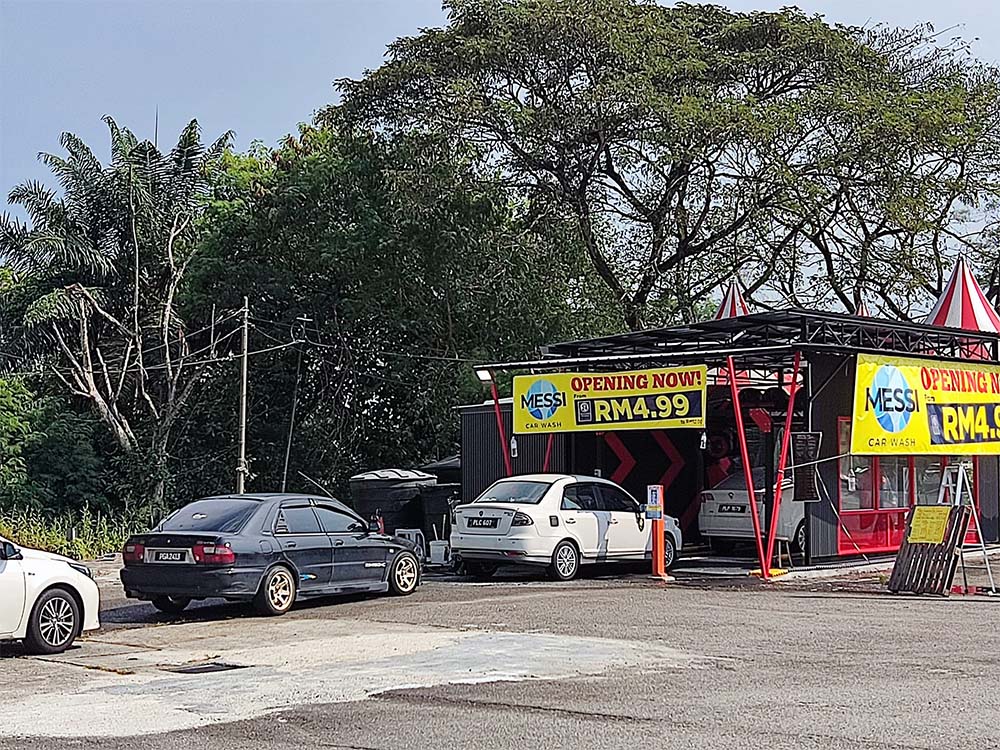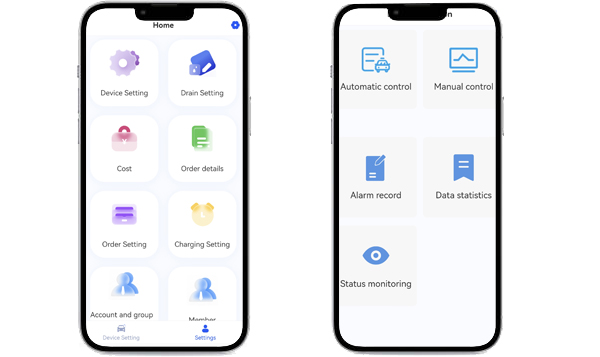In today’s fast-paced world, opening a car wash business requires more than just a basic roadmap—it demands a strategy aligned with evolving consumer preferences, sustainability goals, and cutting-edge technology. Gone are the days of relying solely on traditional models; success now hinges on innovation, adaptability, and a deep understanding of market trends. Below is your modern guide to building a thriving car wash business in 2025 and beyond.
1. Calculate Start-Up Costs with Precision
The financial foundation of your car wash begins with accurate cost estimation. While industry averages suggest an initial investment of $2–$4 million, modern trends demand additional considerations:
- Sustainability Integration: Factor in costs for eco-friendly equipment (e.g., water recycling systems, solar panels) and biodegradable cleaning agents. These not only reduce long-term operational expenses but also appeal to environmentally conscious consumers.
- Technology Upgrades: Budget for smart systems like IoT-enabled sensors, automated payment kiosks, and app-based customer interfaces.
- Real Estate: Prioritize locations with high visibility and proximity to electric vehicle (EV) charging stations, as EV ownership rises globally.
Funding Options:
- SBA Loans: The SBA 7(a) and 504 loans remain popular for their favorable terms, but explore green business grants for sustainability-focused projects.
- Crowdfunding or Partnerships: Consider equity crowdfunding platforms or partnerships with eco-conscious investors to diversify capital sources.
2. Build a Future-Proof Business Plan
A robust business plan must reflect contemporary market dynamics. Key updates to include:
- Sustainability Mission: Highlight eco-friendly practices as a core brand value.
- EV Readiness: Outline plans for EV-specific services (e.g., undercarriage rinses for battery protection).
- Digital-First Approach: Emphasize mobile app integration for bookings, subscriptions, and loyalty programs.
Components to Strengthen:
- Market Analysis: Use AI-driven tools to assess local demand, competitor strengths/weaknesses, and emerging trends (e.g., subscription fatigue, demand for contactless services).
- Financial Projections: Model scenarios accounting for inflation, supply chain disruptions, and shifting consumer spending habits.
- Risk Management: Address cybersecurity risks for digital systems and climate-related operational challenges (e.g., water scarcity).

3. Invest in a Next-Gen POS System
Modern car wash POS systems must go beyond transaction processing. Prioritize solutions that offer:
- Subscription Management: Automate tiered membership plans with dynamic pricing (e.g., surge pricing during peak hours).
- Smart Analytics: Track customer behavior, predict demand, and optimize staffing.
- Omnichannel Integration: Sync with mobile apps, social media platforms, and third-party delivery services (e.g., partnerships with ride-sharing apps for fleet discounts).
- Sustainability Reporting: Monitor water/energy usage and generate reports for eco-certifications (e.g., LEED).
Vendor Selection: Partner with providers like Mattias Car Wash Systems for industry-specific solutions
4. Choose a Strategic, Sustainable Location
Location remains critical, but modern criteria have expanded:
- EV Traffic: Target areas near EV hubs, corporate campuses, or shopping centers with charging stations.
- Urban vs. Suburban: Urban locations favor express/exterior models, while suburban areas may support full-service/flex-serve options.
- Green Certification: Opt for LEED-certified buildings or retrofitting opportunities to reduce carbon footprint.
Visibility & Accessibility:
- Ensure easy ingress/egress for large vehicles (e.g., SUVs, electric trucks).
- Install digital signage with real-time updates (e.g., wait times, promotions).
5. Choose the Right Operating Car Wash Model
Now that you have a location, it’s time to determine what car wash model you’ll operate under. Typically designated as either “tunnel” or “in-bay,” types of car washes come in many shapes and sizes, including:
- In-Bay Automatic Car Wash: A type of automatic car wash where you pull inside the “bay” and the equipment moves around your vehicle to wash it. You’ll often find these washes as part of a gas station and/or a convenience store, or they may be attached to several self-serve bays, (e.g., M-WS310 Touchless Car Wash, M-LM535 Rollover Automatic Car Wash).
- Full-service Car Wash: Full-service car washes offer both exterior and interior cleaning performed manually by car wash staff. A full-service car wash is more time-intensive and often the most expensive standard car wash.
- Express exterior: Another automatic car wash model, this type of wash focuses on the car’s exterior only. Vehicles are pulled by a conveyor or belt through the tunnel where different pieces of equipment complete the wash process quickly and efficiently. They tend to be the more affordable cousin to the full-service car wash, (e.g., M-SD0900D Tunnel Car Wash).
- Flex-serve: This operating model combines elements of the automatic and full-service car wash. Customers can opt for service tiers, from a quick exterior wash to an exterior wash and a manual interior cleaning.
- Self-serve Car Wash: The most familiar in-bay operating model in which customers wash their vehicle using a spray wash and other tools provided by the car wash, (e.g., M-F761AX Self-service Car Wash).
Knowing the difference between each operating model is how you’ll make the best decision for your business.
6. Launch a Data-Driven Marketing Strategy
Modern marketing blends digital precision with community engagement:
- Hyperlocal Targeting: Use geofencing to send promotions to drivers within a 5-mile radius.
- Social Proof: Leverage TikTok/Instagram Reels to showcase “before-and-after” transformations or behind-the-scenes eco-practices.
- Influencer Partnerships: Collaborate with automotive influencers or sustainability advocates to amplify reach.
- Loyalty Programs: Gamify rewards (e.g., points for referrals, social shares) via mobile apps.
Pre-Launch Buzz: Host a “green grand opening” with free washes for hybrid/EV owners and donate proceeds to environmental causes.
7. Design an Unlimited Car Wash Program
Unlimited wash programs are evolving—differentiate with:
- Tiered Memberships: Offer basic, premium, and VIP tiers (e.g., VIP includes free vacuuming, tire shines, or priority lanes).
- Usage Caps with Rollovers: Allow unused washes to roll over or convert to credits for add-on services.
- Family Plans: Discounts for multiple vehicles or bundled services (e.g., car wash + detailing).
- Dynamic Pricing: Adjust rates seasonally (e.g., lower winter fees in cold climates).
Retention Tactics: Send personalized offers (e.g., birthday discounts) and use predictive analytics to identify at-risk subscribers.
8. Partner with Eco-Conscious Distributors
Select distributors aligned with your sustainability goals:
- Equipment: Source water-reclamation systems, energy-efficient dryers, and solar-powered vacuums.
- Chemicals: Use pH-neutral, biodegradable products certified by organizations like Green Seal®.
- Supply Chain Transparency: Prioritize vendors with ethical sourcing and carbon-neutral logistics.
Vetting Questions:
- Do they offer lifecycle support (e.g., equipment recycling)?
- Can they provide data on product environmental impact?

9. Scale with Technology and Diversification
Post-launch growth demands innovation:
- Mobile Expansion: Deploy pop-up wash units at events, offices, or residential complexes.
- Ancillary Services: Introduce detailing, odor removal, or headlight restoration.
- Smart Maintenance: Use predictive analytics to preempt equipment failures and reduce downtime.
- Community Partnerships: Collaborate with local businesses (e.g., cafes, gyms) for cross-promotions.
Sustainability Reporting: Publish annual ESG (Environmental, Social, Governance) reports to attract eco-conscious investors.
10. Embrace the Circular Economy
Future-proof your business by adopting circular practices:
- Water Recycling: Achieve 85%+ water reuse with advanced filtration systems, eg., Car Wash Sewage Purifier M-SH60.
- Waste-to-Resource: Convert soap runoff into biodegradable cleaning agents or compost.
- Community Initiatives: Host workshops on eco-friendly car care or sponsor local environmental projects.
Final Thoughts
The car wash industry is no longer just about cleanliness—it’s about convenience, sustainability, and digital engagement. By integrating green practices, leveraging AI, and prioritizing customer-centric innovation, your business can thrive in a competitive landscape. Stay agile, listen to evolving consumer needs, and let data guide your decisions. The road to success is paved with adaptability.



